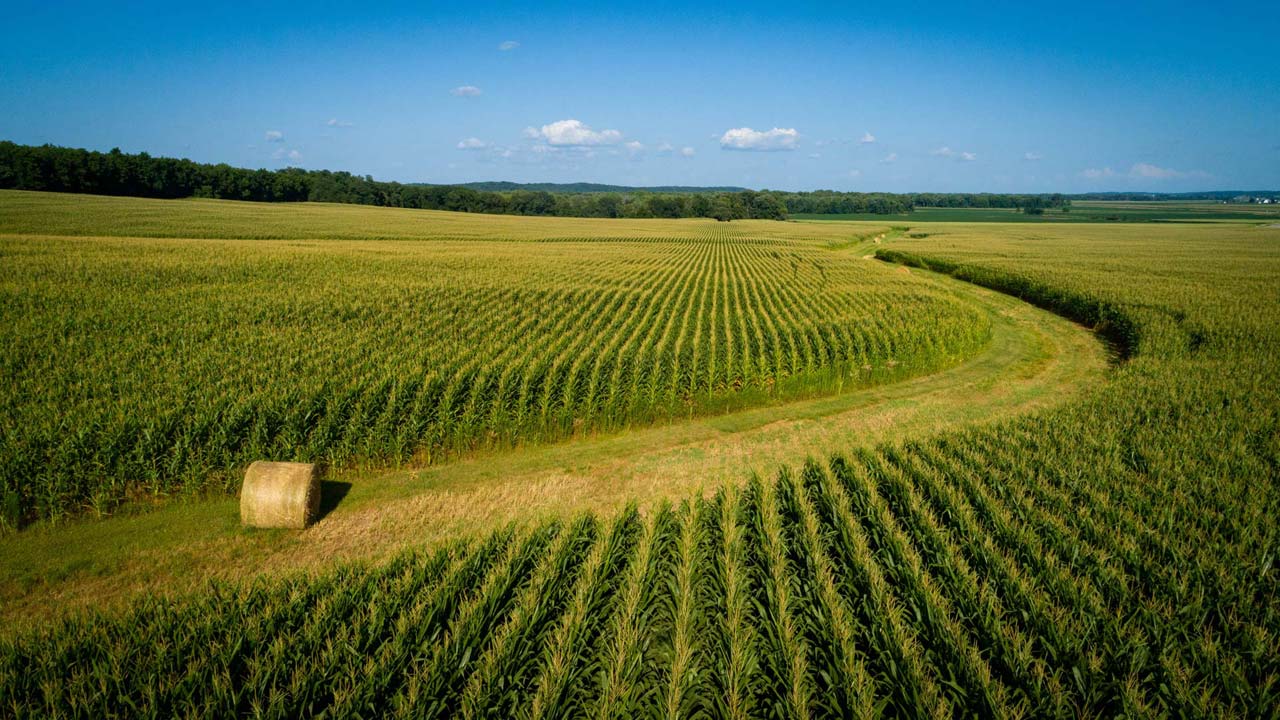2023 April Stewardship Advocate
The Corn Sustainability Assurance Protocol (CSAP) is a farmer-led initiative developed by the U.S. Grains Council (USGC). The CSAP offers international corn buyers and export markets insights into U.S. corn production sustainability practices and outlines U.S. state and federal laws that provide assurances that these practices are being implemented, where required, throughout the country. USGC works very closely with the National Corn Growers Association (NCGA), and both are actively engaged in creating a continuous improvement process for all U.S. agriculture within the framework of Field to Market: The Alliance for Sustainable Agriculture.
Field to Market’s most recent National Indicator Report (2021) provides a look-back analysis of the improvements corn producers have made across five categories over a span of several decades. The results are striking in that they show vast improvements in 2020 versus the baseline established in 1980 for numerous environmental metrics. In addition, NCGA has established new goals for 2030 based on the newly established 2020 baseline.
| Metric | 2020 vs 1980 Baseline | NCGA 2030 goals vs 2020 baseline |
| Reduced Greenhouse Gas Emissions in pounds CO2 per bushel | -48% | -13% |
| improved Energy Use Efficiency in BTU per bushel | -55% | -13% |
| improved Irrigation Efficiencies in Reduced Acre Inches per Bushel | -56% | -15% |
| Reduced Soil Loss per Acre as Measured in Tons of Soil Loss per Acre | -40% | -13% |
| Decreased Amount of Land Required to Produce a Bushel of Corn Measured in Planted Acres per Bushel | -44% | -12% |
Under the CSAP, the conservation compliance requirements serve to define the CSAP’s minimum verification threshold. This requires producers to submit an annual internal audit of compliance with the Highly Erodible Land Conservation and Wetland Conservation provisions (Form AD1026) and makes them subject to on-farm verification/review. Under this system, each marketing year a total allocation of U.S. sustainable corn volume is established by using: 1) the number of planted corn acres participating in U.S. Farm Service Agency programs in a given marketing year, and 2) the average yield per acre recorded for these acres in that period.
The CSAP is organized into eleven impact categories that benchmark the sustainability standards shown in the diagram below. The 11th category is “Continuous Improvement” which overlays the other categories. For each category, the protocol describes best practices, regulations and compliance criteria and provides specific recommendations to improve the outcomes associated with each category. For example, the protocol states that corn producers can reduce greenhouse gas emissions by 1) decreasing fossil fuel usage by reducing tillage, and 2) optimizing nitrogen and phosphorus use and application by following the 4Rs of nutrient management.

With the purpose of responding to the interest expressed by corn buyers and export markets of better understanding the sustainability practices of U.S. corn production, the U.S. Grains Council established a standalone legal entity to operate a web platform associated with the CSAP: Sustainable Corn Exports LLC. This organization is responsible for:
- Annually determining the total amount of U.S. corn in compliance with the CSAP.
- Determining the total amount of U.S. corn eligible for allocation under CSAP.
- Establishing and maintaining the website for interested and eligible corn buyers to register online and request a shipment-specific record of sustainability.
- Maintaining a recordkeeping system via an internet-accessible database, which will be used to verify that U.S. corn exported under the CSAP is compliant and recorded.
- Shippers using the Sustainable Corn Exports LLC database will establish and maintain a firm-specific record that will provide the necessary information for a uniquely identified record of sustainability to accompany individual U.S. corn exports.
For more information about the protocol, please see: Corn Sustainability Assurance Protocol
LATEST INFORMATION:
10th Anniversary of the Iowa Nutrient Reduction Strategy
Nominations for the 2023 Iowa Farm Environmental Leader Award
Iowa Seed Corn Cover Crop Initiative 2022 Results and 2023 New Collaboration
Agricultural Genome to Phenome Initiative Announces Grants for Big Projects, National Conference
USDA Awards Innovations in Climate-Smart Agriculture, Soil Health and Nutrient Management
Polk County’s Water Improvement Program Being Replicated
Farmer Conservation Efforts Deliver Results
Soil Health Institute Receives Grant from Wells Fargo to Establish Soil Health Targets in Iowa
Iowa Ag Connection – First Phase of Boone County Water Quality Project Launched
Consider Corn Challenge IV Continues to Find Game-Changing New Uses for Field Corn
UPCOMING EVENTS:
May 10: Highlights from a Decade of INRC Research & Impacts: Iowa Beef Center, Cover Crops & Field Tour of Research Sites, Webinar and Ames
May 12: Iowa Nutrient Reduction Strategy Field Day at Chuck White Farm, Spencer
May 16: Iowa Nutrient Reduction Strategy Field Day, Cedar Rapids
May 23: Lower Phalen Creek Project, Webinar
May 24: Iowa Nutrient Reduction Strategy Field Day at Lee Tesdell Farm, Slater
June 5: Top Soil Summit – Continuum Ag, Riverside
June 27: Implications of Movement Ecology in Conservation Planning for Monarch Butterflies, Webinar
July 19: What’s up with WOTUS: A look at the Current WOTUS Definition and Recent Supreme Court Decision, Webinar
FARMER TO FARMER VIDEO: IMPROVING IOWA’S WATER QUALITY
60% of the Iowa Department of Land and Stewardship resources are dedicated to protecting Iowa’s water quality and soil health. Iowa corn farmers, along with our partners continue the work to improve and preserve our water, air and soil quality.
